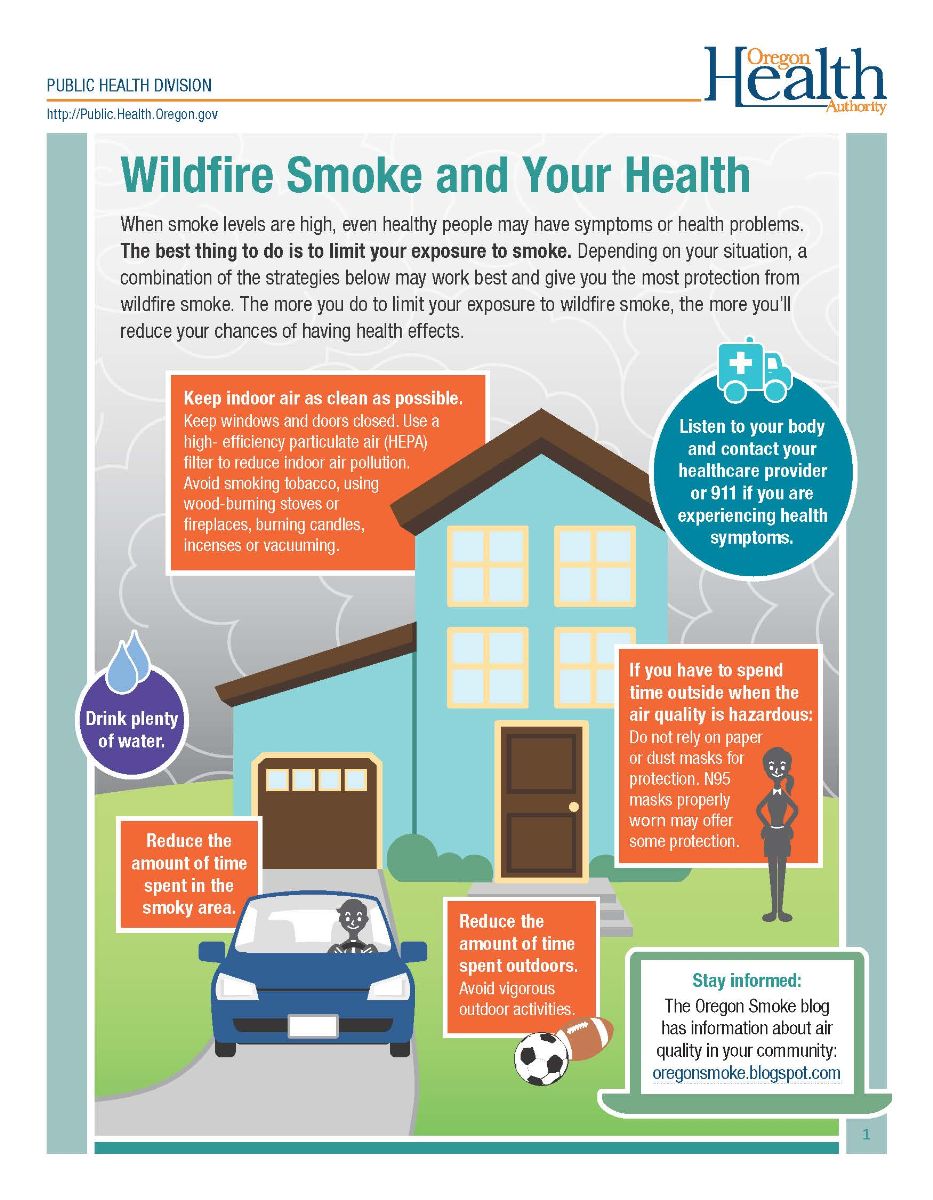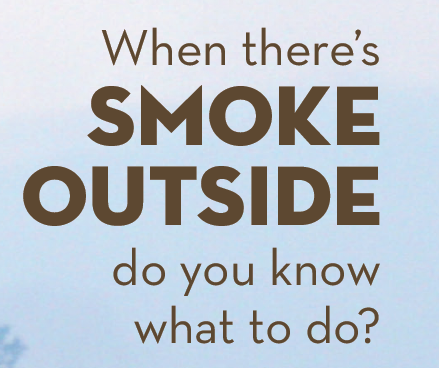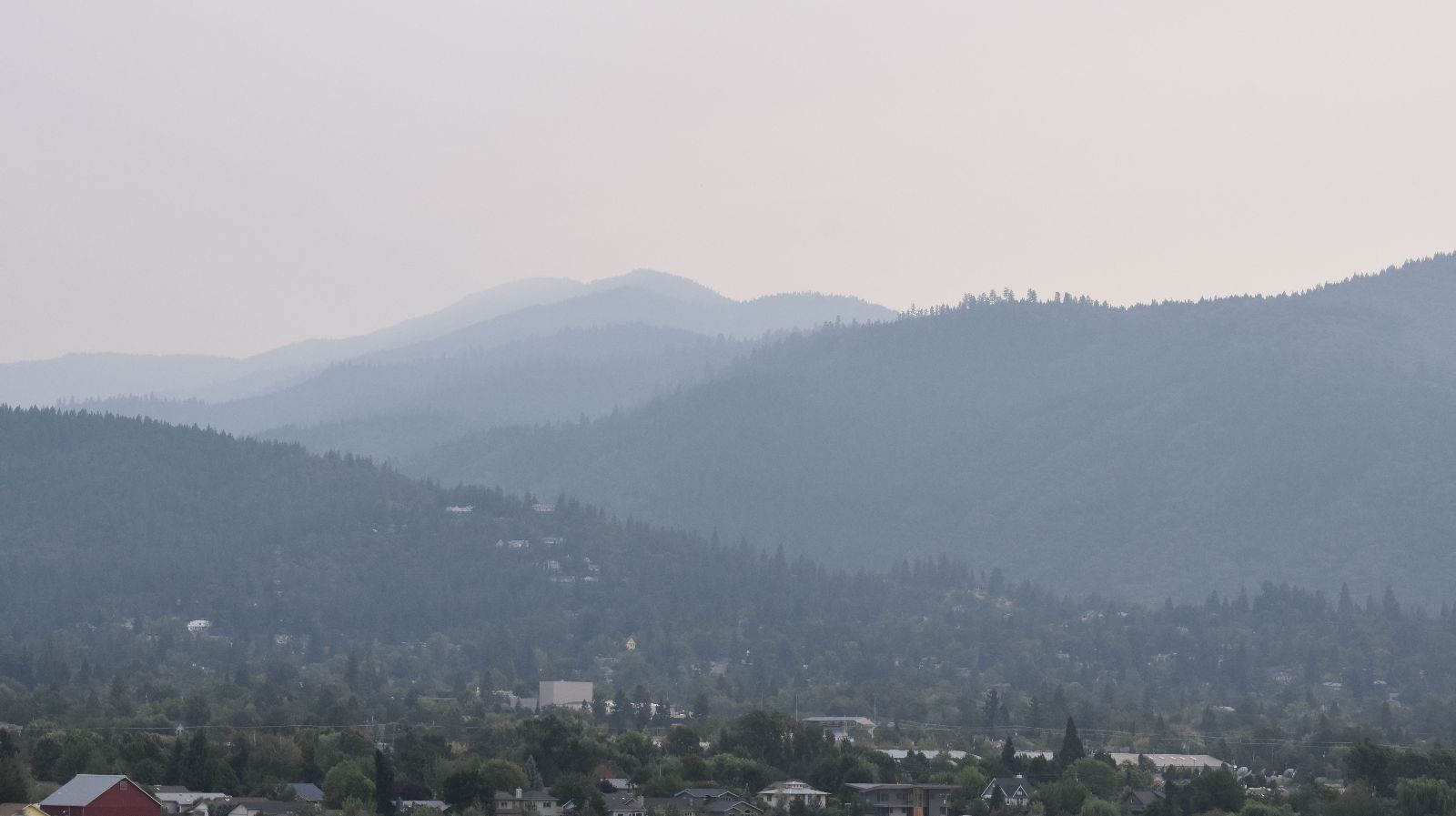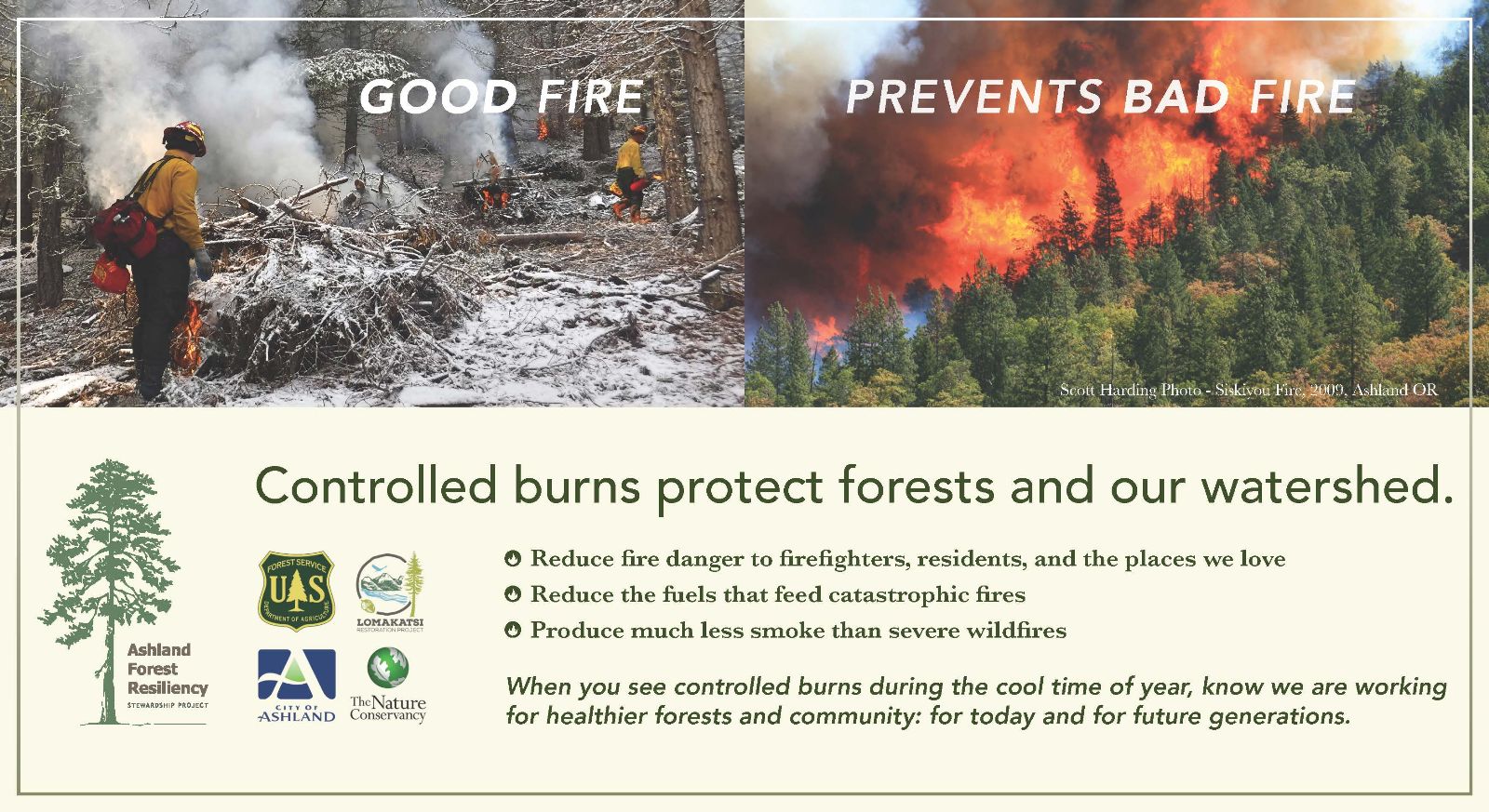Smoke and Your Health
Welcome to SmokeWise Ashland!
Business and organizational resources can be found at our partner Ashland Chamber of Commerce page.
Quick link: How Do I Protect Myself
Wildfire and Smoke Updates
Smoke Forecasts
Use the Air Quality Index (AQI)
Ashland's air quality is measured on the roof of Fire Station #1 downtown.
- DEQ's Air Quality Index (AQI). Click on "PM2.5" at left, then Ashland's dot on the map.
- EPA's AirNow has current air quality and maps showing regional wildfires and smoke.
- Search for DEQ's "Oregon Air" app in your phone's App Store.
- If unable to check air quality, use the visibility index.
Smokey Skies and Your Health: The Air Quality Index from Ashland Chamber on Vimeo.

Smoke Exposure and Health
Prolonged exposure to smoke can be harmful to people of all ages. Smoke can eventually damage your body's ability to remove large particles and excess phlegm from your lungs and airway. Small particles (PM 2.5) pose the greatest risk, because they can get deep into your lungs, and even into your bloodstream.
Symptoms of smoke exposure usually include irritation of eyes, nose, and throat or breathing discomfort, even in otherwise healthy people. More severe symptoms may include chest tightness, wheezing, shortness of breath, and coughing. Anyone experiencing symptoms should contact their healthcare provider for further advice or call 911.
Who's the Most at Risk?
Take precautions at appropriate AQI level if you are in a sensitive group:
- Children should take precautions and limit outdoor activities
- Recommendations for pregnant or nursing mothers
- Older adults and people with pre-existing conditions
How Do I Protect Myself?

- Limit your exposure to smoke.
- Avoid anything that increases indoor pollution like candles or vacuuming.
- Close windows and doors
- Run an air conditioner if you have one. Keep the fresh-air intake closed and the filter clean. Use a high-efficiency filter with HEPA or MERV 13 or higher rating. Air purifiers and filters can be purchased at your local hardware store or online.
- Fine particles, but not hazardous gases, can be filtered with an N95 or N100 face mask. These masks can be found at your local pharmacy or hardware store.
- Ensure a tight fit and check how long your mask is effective. Bandanas and paper dust masks are ineffective and only trap large particles.
Health Recommendations
Spanish: Protege tu salud con estas recomendaciones
Print in English: Health Recommendations
Imprimir en espaņol: Recomendaciones de salud
Properly Fitting NIOSH N-95 Mask
Follow the advice of your doctor or healthcare provider

- If you have a pre-existing condition, review your respiratory management plan with your physician.
- Consider leaving the area if you are sensitive and smoke is an ongoing problem.
- Call your healthcare provider for further advice if your symptoms worsen.
Prepare for Wildfire Season
Ashland residents live in a fire-prone environment and need to prepare for wildfire every year to protect our community and our health. If you have heart, vascular or lung disease, including asthma, talk with your healthcare provider before fire season to make plans. Discuss when to leave the area, how much medicine to have on hand, and your action plan if you know you may have issues. Have a several-day supply of nonperishable foods that do not require cooking. Cooking - especially frying and broiling - can add to indoor pollution levels.
Heating and Cooling (HVAC) Equipment and Recommendations
Prepare Your Home and Family for Smoke:
Use the Smoke Sense app to get air quality information and tips to protect your health when it is smokey outside.
Decision Making for Events
Learn how your organization should plan for smoke.
Good Fire Prevents Bad Fire
Receive alerts for controlled burns

.png)

